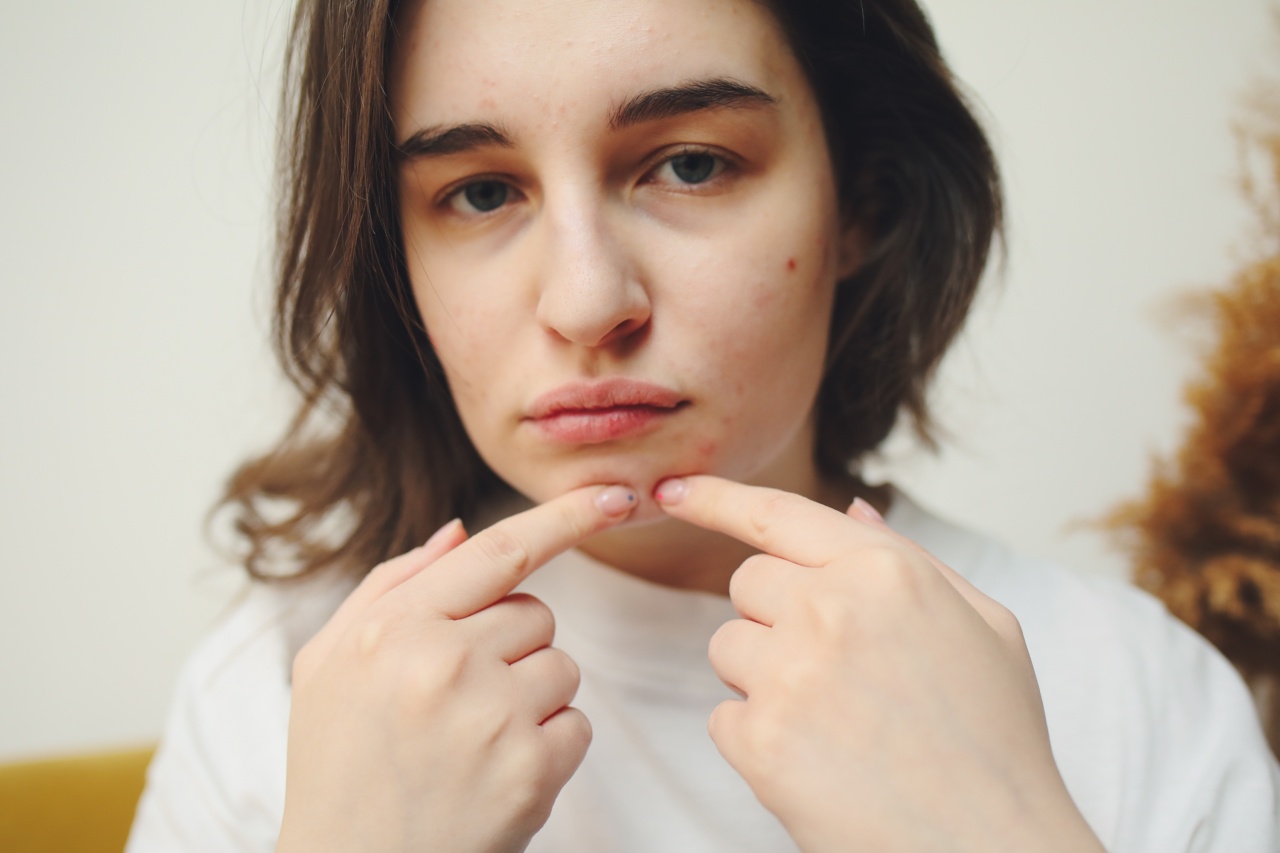Acne is a common skin condition that affects millions of people worldwide. It occurs when the hair follicles become clogged with oil, dead skin cells, and dirt, leading to the formation of pimples, blackheads, and whiteheads.
While most commonly associated with puberty, acne can affect individuals of all age groups.
The Role of Hormones
Hormonal changes play a significant role in the development of acne. During puberty, the body produces higher levels of androgens, a group of hormones that include testosterone.
These hormones stimulate the sebaceous glands, leading to increased oil production. The excess oil, along with the dead skin cells, can clog the pores and result in acne breakouts.
However, hormonal acne is not limited to puberty. Hormonal fluctuations in adults, such as during menstruation, pregnancy, or menopause, can also trigger acne.
Women often experience premenstrual flare-ups, characterized by breakouts before their menstrual period due to hormonal imbalances.
The Impact of Genetics
Genetics also play a significant role in acne development. If your parents or siblings had acne, you are more likely to develop it as well.
Certain genes influence the size and activity of the sebaceous glands, as well as the production of inflammatory molecules in response to bacteria, increasing the susceptibility to acne.
Diet and Acne
While the relationship between diet and acne is still debated, some studies suggest that certain foods may contribute to acne formation.
High glycemic index foods, such as refined carbohydrates and sugary snacks, can raise blood sugar levels quickly, leading to increased insulin production. Elevated insulin levels can stimulate oil production and contribute to inflammation, worsening acne symptoms.
Additionally, dairy products might play a role in acne development. Milk contains hormones that can stimulate oil glands, as well as growth factors that promote cell proliferation in the skin.
Some individuals may also be sensitive or allergic to specific components in dairy, leading to an inflammatory response and acne breakouts.
Poor Skincare Habits
Your skincare routine and habits can greatly impact the development of acne. Failing to cleanse your skin properly can allow dirt, oil, and dead skin cells to accumulate and clog the pores.
It is essential to cleanse your face gently twice a day using a mild cleanser suitable for your skin type.
Over-washing or using harsh cleansers can strip away the natural oils from your skin, leading to increased oil production as the body tries to compensate.
It is also important to avoid touching your face with dirty hands or resting objects against your face, as it can transfer bacteria and irritate the skin.
Stress and Acne
High levels of stress can trigger or exacerbate acne breakouts. When you experience stress, the body releases cortisol, a stress hormone that increases oil production and inflammation.
Stress can also impair your skin’s ability to heal, making breakouts last longer and increasing the risk of scarring.
Finding healthy ways to manage stress, such as exercise, relaxation techniques, or talking to a therapist, can help reduce the impact on your skin.
Adequate sleep is also crucial for overall skin health, as insufficient rest can lead to increased inflammation and impaired healing.
Appropriate Medications
Some medications and cosmetic products may contribute to acne development as a side effect. Certain drugs, including corticosteroids, hormonal medications, and anticonvulsants, can influence hormone levels and trigger acne.
Additionally, certain makeup products and hair styling products can clog the pores and worsen acne symptoms. If you suspect that a specific medication or product is causing or worsening your acne, consult a healthcare professional for guidance.
Environmental Factors
Environmental factors such as pollution and high humidity levels can also impact acne. Air pollution can contribute to the accumulation of dirt and toxins on the skin, leading to clogged pores and breakouts.
Humid climates increase sweat production, which can mix with oil and dead skin cells, creating an ideal environment for acne-causing bacteria to thrive.
Protecting your skin from environmental pollutants and maintaining good hygiene can help minimize the impact of these factors. Regularly cleansing your skin and using non-comedogenic sunscreen can provide a barrier against pollution and UV damage.
Conclusion
Acne is a multi-faceted skin condition influenced by various factors such as hormonal changes, genetics, diet, skincare habits, stress, medications, and environmental factors.
Understanding the causes of acne can help you make informed choices regarding skincare routines, lifestyle adjustments, and seeking professional help when necessary. While acne can be frustrating, it is a treatable condition, and with the right approach, you can achieve clearer and healthier skin.































